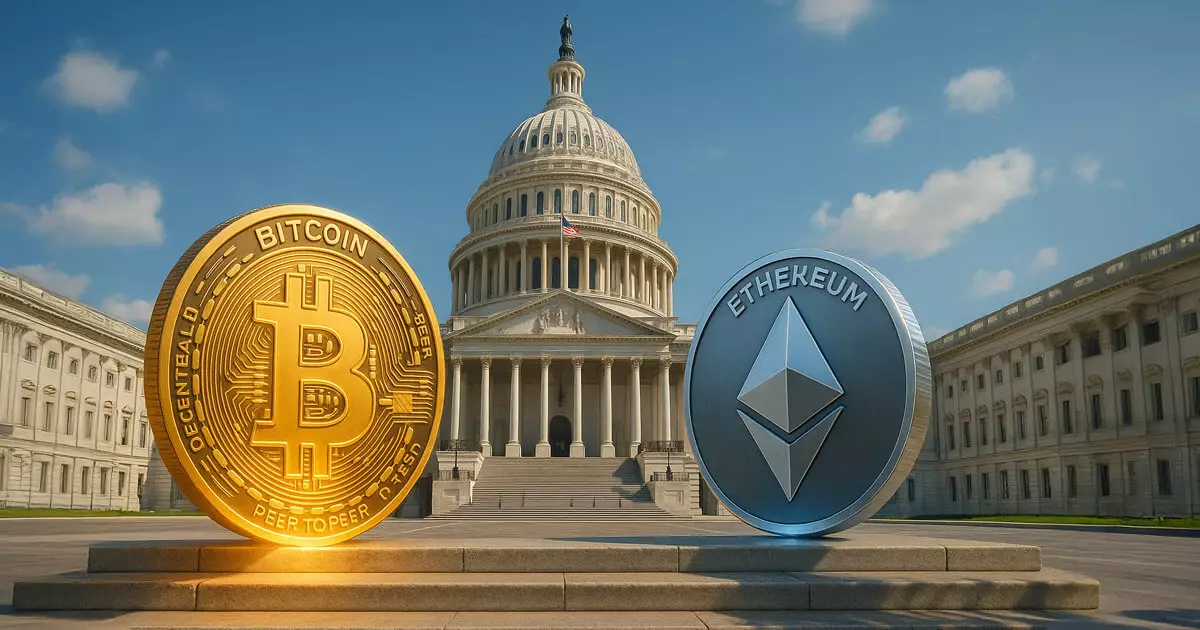In recent discussions, a group of twelve Democratic senators has sought to push forward a comprehensive legislative framework for cryptocurrency regulation, urging Republican cooperation. While the intention behind this bipartisan call might appear pragmatic—aiming to establish clarity and oversight—the reality reveals deeper flaws rooted in rushed policymaking and misplaced faith in regulatory control. Their focus on “mutual understanding” merely masks a tendency to favor heavy-handed regulation over innovation, creating a false sense of unity that sidesteps meaningful debate about the future of digital markets.
Moreover, the very framing of the legislation as a necessary step to “replace oversight gaps” betrays a belief that existing financial regulatory institutions—namely the SEC and CFTC—are equipped to manage an inherently novel and decentralized technology. Tragically, this oversight model risks stifling the transformative potential of digital assets, preferring safety over progress in a manner that could cripple America’s competitive edge in financial innovation.
The Illusion of Regulatory Certainty
The core of this proposed legislation attempts to assign exclusive jurisdiction to the Commodity Futures Trading Commission over certain crypto markets, while empowering the SEC to oversee tokenized securities. While this might seem sensible on paper, it ignores the disruptive, borderless nature of digital assets. Forcing a traditional regulatory framework onto inherently decentralized, tech-driven markets is akin to applying a medieval law code to the internet; it’s bound to be ineffective, and possibly counterproductive.
This regulatory approach presumes the government can select winners and losers, a dangerous gamble in an industry driven by innovation and entrepreneurship. Handing the CFTC control over “spot markets” and expanding the SEC’s reach creates an illusion of oversight and security. But in doing so, it risks marginalizing the very startups and new ventures that could propel America to the forefront of the digital economy. Instead of encouraging innovation, the legislation might catalyze a regulatory chokehold, discouraging entrepreneurs and investors who prefer jurisdictions with less heavy-handed oversight.
Overreach and the Stifling of Innovation
Fundamentally, this bill reflects a cautious bureaucratic mindset that values control over the fundamental nature of digital assets. For instance, the attempt to regulate decentralized finance (DeFi) protocols and stablecoin issuers with strict registration and compliance obligations presumptuously underestimates how dynamic and complex this new ecosystem is. By insisting on applying traditional AML standards globally—even to foreign entities serving US clients—the legislation risks alienating international innovators.
Furthermore, the proposal’s emphasis on preventing public officials from “profiting” from digital tokens, although seemingly principled, veers into overreach. Such restrictions could hamper officials’ ability to understand and potentially influence the market, resulting in a regulatory environment that discourages transparency and expertise. This appears more like moral posturing than a pragmatic approach, reflecting fear rather than forward-looking strategic leadership.
Inadequate Recognition of America’s Potential to Lead
What makes this legislative effort particularly troubling is its missed opportunity for America to lead. Instead of embracing our inherent advantages—our entrepreneurial spirit, technological prowess, and long-standing leadership in financial markets—this bill leans towards protectionism masked as regulation. It signals an obsession with control that may, ultimately, hinder our dominance in digital assets.
A smarter approach would prioritize clear, flexible rules that foster innovation rather than squashing it under layers of bureaucratic red tape. By rushing to regulate before truly understanding the technology’s potential, the United States risks falling behind global competitors who understand that innovation cannot be contained once unleashed.
Instead of framing digital assets as a threat to be tamed, America should aim to be a beacon for responsible innovation, creating a regulatory environment that enhances competitiveness and encourages responsible growth. This legislation, while well-intentioned, ultimately falls short by emphasizing control over the creative destruction that defines the digital revolution. Our leadership depends on recognizing the importance of setting principles that protect investors but also empower entrepreneurs to push boundaries, not restrict them under the guise of regulation.



















Leave a Reply